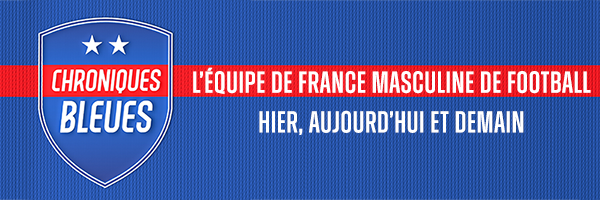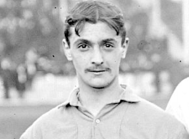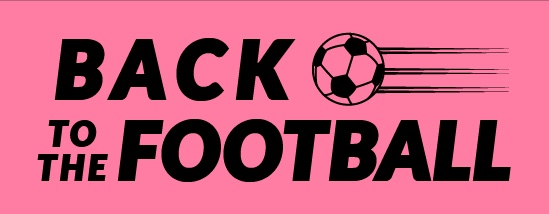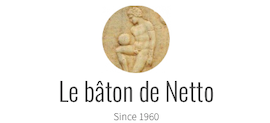Lire sur le site de Soccer Nostalgia The Soccernostalgia Interview-Part 49
Lire la version en anglais. English version here
Cet article fait partie de la série Dialogue avec Soccer Nostalgia
Soccernostalgia : Michel Hidalgo a commencé la saison 1983/84 avec l’Euro 1984 comme objectif principal. À quel point lui et la Nation étaient-ils confiants à ce stade ?
Bruno Colombari : L’objectif paraissait encore loin. Et l’Euro n’avait à l’époque pas la même importance qu’aujourd’hui. Il ne concernait que huit sélections et avait changé de formule en 1980, passant d’un format Coupe d’Europe à un format de tournoi. Il était loin de susciter autant d’intérêt que la Coupe du monde, d’autant que celle-ci était passée de 16 à 24 équipes, et que l’édition 1982 avait été très spectaculaire.
La saison débute le 24 août 1983, par un match amical à Paris contre le club Uruguayen Peñarol Montevideo. Ferreri (remplaçant de Platini) a marqué le but vainqueur de la France (1-0). Comment la performance a-t-elle été vue ?
Ces matchs amicaux estivaux contre des clubs n’avaient pas vraiment de sens, d’autant qu’ils ne comptaient pas pour une sélection. C’est l’avant-dernier du genre, il y en aura un autre contre l’Inter Milan en 1984 puis ce sera fini. Même délocalisé à Toulouse, ce France-Penarol n’avait pas fait le plein avec un peu plus de 10.000 spectateurs. Pourtant, c’est presque l’équipe qui gagnera l’Euro qui sera alignée, avec Ferreri et Bravo à la place de Platini et Lacombe.
Le 7 septembre 1983, la France reçoit un avertissement après une défaite à Copenhague face à une équipe montante du Danemark (1-3). Le partenariat défensif central Bossis-Le Roux a mal fonctionné et Hidalgo a laissé entendre que Trésor pourrait revenir. Que pensez-vous de ce match ?
Les Bleus sont tombés sur un grand Michael Laudrup, qui a signé un doublé, et l’égalisation rapide de Platini n’a pas suffit. Tigana était absent, et on a pu voir à quel point il était important au milieu de terrain, où Bernard Genghini faisait son retour après son transfert à Monaco. Le plus important dans ce match, mais on le saura plus tard, est que le gardien débutant Joël Bats, qui encaisse trois buts, est celui que Michel Hidalgo cherchait depuis 1976. Il a eu le mérite de ne pas le condamner sur cette prestation et de lui laisser d’autres occasions de montrer ses qualités. C’est la démonstration qu’il ne faut pas juger un joueur débutant sur un seul match.
Le 5 octobre 1983, la France affronte l’Espagne au Parc de Paris, avec de nombreux titulaires absents. Le match s’est terminé sur match nul (1-1) avec Marius Trésor battant le record d’apparition de Roger Marche en remportant sa 64e sélection. Que pensez-vous de ce match ?
L’équipe d’Espagne 1983-84 était bien meilleure que celle de 1982, on s’en apercevra à l’Euro où elle atteindra la finale. Emilio Butragueno n’arrivera que dans quelques mois, mais déjà les progrès sont évidents, et les Pays-Bas vont se faire éliminer et manquer l’Euro. Marius Trésor récupère le brassard de capitaine que portait Michel Platini depuis l’été 1979. C’est son dernier match en équipe de France à domicile. Rocheteau a ouvert le score mais Bats a séché Senor dans la surface et ce dernier a égalisé sur pénalty. Bien malin qui pourra prédire que c’était une répétition de la finale de l’Euro qu’on venait de voir.
Devenait-il évident que Trésor pourrait ne pas durer physiquement la saison et donc que Maxime Bossis était en fait le libéro ?
Marius Trésor souffrait du dos depuis plusieurs mois et avait déjà été opéré. A 32 ans, sa fin de carrière approchait et même si l’Euro était son objectif, il se doutait que ça allait être difficile. Bossis semblait effectivement devoir prendre la relève, mais la question, c’était associé à qui ? Sa complémentarité avec Le Roux n’avait convaincu personne contre le Danemark.
Le 12 novembre 1983, la France se rend à Zagreb et repart avec un nul sans but. Hidalgo a exprimé sa satisfaction pour la performance défensive à l’extérieur. Comment ce résultat a-t-il été perçu ?
Sans Platini, l’équipe de France était beaucoup moins dangereuse devant, même avec le trio Fernandez-Tigana-Giresse au milieu. L’attaque Rocheteau-Bellone ne faisait pas de différence, ce qui coûtera d’ailleurs sa place au premier à l’Euro. Mais surtout, les Bleus ne semblaient pas très motivés à l’idée de jouer ce dernier match de l’année, un samedi après-midi de novembre. Et en face, c’était la vraie équipe de Yougoslavie, pas les remplaçants qui avaient été battus 4-0 en avril. Il y avait Safet Susic, Dragan Stojkovic, les frères Vujovic, Bazdarevic, Hadzibegic…
Ce match contre la Yougoslavie était le dernier de Marius Trésor avec la France. Pouvez-vous décrire sa carrière en équipe nationale ?
Il avait été lancé par Georges Boulogne en 1972, et avait formé une belle charnière défensive avec Jean-Pierre Adams, qui jouait à Nice. Il est à la limite de la génération perdue entre 1960 et 1976. Il aura connu la Coupe du monde 1982 mais n’aura rien gagné avec les Bleus. C’était un joueur de classe mondiale, physiquement très puissant et il gardait des réflexes d’avant-centre, poste qu’il avait occupé à ses débuts. Il aura joué un rôle important dans la progression des Bleus à partir de 1976, mais il n’en aura pas profité.
Le 29 février 1984, la France reçoit l’Angleterre au Parc de Paris. Le nouveau Ballon d’Or, Michel Platini a marqué les deux buts de la France lors de la victoire (2-0) face à un adversaire de premier plan. Était-ce l’une des meilleures performances de Platini ?
Comme tous les très grands joueurs, Michel Platini devenait meilleur à l’approche des grandes compétitions. Après un an et demi de matchs amicaux, ce France-Angleterre, qui était un peu la revanche de Bilbao, était excitant, même si les Anglais n’allaient pas participer à l’Euro : le Danemark avait fini premier de leur groupe et les avaient battus à Wembley. Platini faisait une deuxième saison bien meilleure que la première à la Juventus, avec laquelle il allait remporter la Coupe des Coupes et le scudetto au printemps. Au Parc des Princes, il fait un festival et bat Shilton deux fois, sur une tête décroisée en reculant, un geste technique très difficile et sur un coup franc plein axe tapé en force.
Le « Carré Magique » a débuté un match pour la première fois ensemble contre l’Angleterre. Platini, Giresse, Tigana et Fernandez étaient tous disponibles. À quel point cela était-il important ?
Parce que ça équilibrait toute l’équipe et que ça permettait à Platini de jouer plus haut, juste derrière ses attaquants (Touré et Bellone sur ce match). Giresse également était plus libre de ses mouvements avec Tigana et Fernandez pour sécuriser le milieu. Quand ils avaient la possession, les Bleus jouaient avec quatre attaquants qui permutaient sans cesse. C’était très compliqué pour l’équipe adverse de lire le jeu des Français.
Le 28 mars 1984, la France accueille l’Autriche à Bordeaux. Platini était absent, donc, Giresse était capitaine à domicile pour l’occasion. Hidalgo a rappelé Bernard Lacombe pour la première fois depuis la Coupe du monde. La France s’est imposée (1-0) face à une équipe autrichienne défensive. Comment la performance et le rappel de Lacombe ont-ils été perçus ?
Depuis la Coupe du monde, Michel Hidalgo avait résolu deux problèmes importants : le poste de gardien, où Joël Bats gagnait en assurance, et l’équilibre du milieu de terrain où Luis Fernandez s’était installé. Mais l’attaque restait le point faible, surtout depuis l’automne 1983, avec peu de buts marqués et beaucoup de rotation sur les attaquants. Bernard Lacombe faisait une très bonne saison avec Bordeaux, qui allait être champion de France. Ce n’était évidemment pas une solution d’avenir, puisqu’il avait bientôt 32 ans (en août), mais il avait l’avantage de connaître Platini par coeur. Contre l’Autriche, il est remplacé en début de deuxième mi-temps par Rocheteau, qui marque le seul but du match.
Le 18 avril 1984, la France accueille l’Allemagne de l’Ouest à Strasbourg. La France s’est imposée (1-0) dans ce match amical très médiatisé. Comment cette importante victoire a-t-elle été perçue par la presse ?
L’équipe de France n’avait plus battu l’Allemagne depuis 1977, et restait évidemment sur un souvenir très amer de Séville en 1982, mais aussi d’une large défaite à Hanovre en 1980 (1-4). Pour beaucoup, il était certain que les Bleus allaient retrouver la RFA en demi-finale ou en finale de l’Euro, et que ce match de Strasbourg était autant la revanche de Séville que la préparation du choc à venir. Mais il y avait trop de forfaits côté français (Tigana, Giresse, Platini, Lacombe, Touré) pour que le résultat ait vraiment de l’importance. L’ambiance était très hostile envers Harald Schumacher, qui a quand même fait preuve de cran. L’ironie de l’histoire est que ce sont deux héros malheureux de Séville, Bernard Genghini et Didier Six, qui sont impliqués dans le but français.
Contre l’Allemagne de l’Ouest, la France portait son nouveau maillot qu’elle porterait à l’Euro. Comment a été la réaction du public aux nouveaux maillots ?
Pour ma part je me souviens qu’il avait surpris beaucoup de monde avec sa bande horizontale rouge et ses trois lignes blanches dessous. C’était un design original, très peu de maillots ressemblaient à ça, hormis ceux de Boca Juniors ou de Stuttgart. Et cette bande rouge horizontale est devenue le porte-bonheur des Bleus, qui ont été champions d’Europe, puis du monde en 1998 avec un maillot hommage à celui de 1984. Personnellement, je le trouve très beau, à la fois sobre et original, en respectant le bleu roi, ce que ne fait pas Nike depuis 2011.
Le dernier match amical préparatoire de la France avant l’Euro a eu lieu le 30 mai 1984, à Marseille contre l’Ecosse. La France s’est imposée (2-0) lors de son ultime épreuve. Comment la performance a-t-elle été vue ?
Ce match-là, je l’ai vu, j’étais dans les tribunes du Vélodrome. L’opposition n’était pas très bonne, mais les Bleus semblaient forts et surtout très au point collectivement. Avec un peu plus de précision dans la finition, le score aurait pu être beaucoup plus large. Platini était le chef d’orchestre, il parlait beaucoup à ses coéquipiers, les replaçait, les encourageait, on le sentait déterminer à tout renverser.
Y a-t-il eu des oublis surprises dans l’effectif final de Michel Hidalgo pour l’Euro ?
Non. C’était une liste de 20 joueurs, ce qui laissait très peu de choix de remplaçants puisqu’avec trois gardiens, ça ne faisait plus que sept joueurs de champ en réserve. Les postes n’étaient donc pas doublés. Le seul absent notable était José Touré, mais il était forfait et participera aux Jeux olympiques de Los Angeles.
L’Euro a débuté le 12 juin 1984 au Parc de Paris contre le Danemark. Ce fut une victoire difficile (1-0) avec la blessure de Le Roux et l’expulsion d’Amoros. Y avait-il des inquiétudes ou de la confiance après la victoire ?
Plutôt de l’inquiétude. A l’Euro, il n’y a pas d’adversaires faciles, et cette victoire avait été arrachée au terme d’un match plutôt raté. On peut même dire qu’elle a été chanceuse car les Danois ont maîtrisé le jeu, mais ils ont perdu Alan Simonsen sur le choc où Le Roux se blesse aussi. Et le but de Platini vient sur un tir dévié de la tête par un défenseur danois qui est à terre… Mais ce match est important, parce qu’en 1978 ou en 1982, les Bleus ne l’auraient probablement pas gagné. Là, ils s’imposent contre le cours du jeu, ce qui est la marque des grandes équipes.
La perte d’Amoros et Le Roux, contraint Hidalgo à remanier la défense. Fernandez a reculé en défense et Domergue a été repêché. Comment cela a-t-il été perçu dans la presse ?
Ces changements faisaient un peu peur. Jean-François Domergue est un défenseur axial à Toulouse, et il va devoir jouer arrière gauche. Fernandez est milieu défensif, et se retrouve arrière droit. Battiston et Bossis n’évoluent pas ensemble dans l’axe habituellement, même si ce sera le cas en 1986. Et tout ça avant de rencontrer la Belgique, finaliste de l’Euro 1980 et qui avait fait une belle Coupe du monde 1982. Et qui avait dans ses rangs Enzo Scifo, un joueur de 18 ans d’origine italienne qui venait d’être naturalisé belge pour pouvoir être sélectionné.
Le 16 juin 1984, à Nantes, la France a démoli la Belgique (5-0) avec Platini inscrivant un triplé. La France semblait-elle le champion probable à ce stade ?
A mon avis, c’est sans doute le match le plus maîtrisé de l’histoire des Bleus, du moins en phase finale. C’est aussi le score le plus large à ce niveau de la compétition. En fait, l’équipe de France a évolué quasiment en 3-5-2 car Fernandez est vite remonté au milieu, complétant ainsi le carré magique de 1982 puisque Genghini avait été titularisé. La prestation de l’équipe de France a été extraordinaire. elle donnait une impression de vitesse, de puissance et de technique qui la rendait invincible.
Ce jour-là, elle aurait battu n’importe quel adversaire. Le niveau de la Belgique n’était pas en cause, simplement les Bleus étaient trop forts. On retient bien entendu le triplé de Platini (gauche, droit et tête), son premier en match officiel en sélection, mais les buts de Giresse et de Fernandez sont aussi magnifiques. Ce match-là est l’apogée de la carrière de Michel Hidalgo. Et je ne suis pas sûr que les Bleus aient fait mieux depuis.
Le 19 juin 1984, à Saint Etienne, la France bat la Yougoslavie déjà éliminée (3-2). Platini était en feu, c’était son deuxième triplé consécutif. Quelle a été votre réaction après les performances de la France et de Platini au premier tour ?
La défense avait donné de gros signes de faiblesse en première mi-temps, où les Yougoslaves se sont créé quelques occasions alors que les Bleus sont mal disposés, avec Ferreri à la place de Genghini, qui avait pourtant été excellent à Nantes, et Rocheteau en pointe. Joël Bats n’avait plus encaissé de but depuis sept matchs, et la lucarne de Sestic a refroidi l’ambiance. A la mi-temps, Hidalgo rectifie le tir, sort Roocheteau, Tusseau entre en défense et Fernandez remonte au milieu. Platini se retrouve avant-centre. En deux minutes et 36 secondes, il va marquer deux fois. Sur un coup franc à l’entrée de la surface et d’une tête plongeante sur un centre de Battiston. Il en met même un troisième, du gauche, avant que les Yougoslaves ne réduisent le score sur pénalty. Trois matchs, trois victoires, et la série qui continue depuis le début de l’année (sept matchs, sept victoires). Que demander de plus ? Platini bat aussi le record de buts de Fontaine (30) qui avait été réévalué par la FFF avec le triplé de 1953 face au Luxembourg, pour sa première sélection.
On attendait maintenant une demi-finale contre la RFA, qui devait jouer le lendemain contre l’Espagne et qui avait besoin d’un nul pour se qualifier. Mais les Espagnols ont marqué à la 90e minute et ont terminé premiers devant le Portugal…
Le 23 juin 1984, pour les demi-finales, la France affronte le Portugal à Marseille. C’était un revers de Séville, car la France est revenue d’une position perdante pour s’imposer de façon spectaculaire en prolongation (3-2). On se souvient du match pour la course de Tigana en fournissant la passe décisive pour le but décisif à la dernière minute. À quel point cela a-t-il été dramatique pour vous en tant que témoin ?
C’était un match très différent de celui de Séville, car après le premier but de Domergue, les Bleus ont largement dominé et auraient dû l’emporter par trois ou quatre buts d’écart. Les Portugais défendaient comme ils pouvaient, ils avaient de la chance et un gardien, Bento, qui était toujours sur la trajectoire. Mais quand Jordao a égalisé, on a commencé à se dire que c’était mauvais signe.
Les prolongations ont été un calvaire. Bats a sorti une tête de Nené à bout portant, a encaissé un deuxième but sur une volée de Jordao et a fait basculer le match en contrant Nené sur une balle de 1-3. Fernando Chalana était un poison sur l’aile droite, et Domergue n’en pouvait plus. C’est pourtant lui qui trouve les ressources pour égaliser. Et là, on est dans l’irrationnel. Les Bleus poussent pour éviter les tirs au but, et ce que fait Tigana est extraordinaire, le jour de son anniversaire (comme Domergue, d’ailleurs). C’est sans doute la plus belle passe décisive du football français. Saviez-vous que Zidane, qui avait 12 ans, était ramasseur de balle derrière le but de Bento ? On le voit faire des bonds après le but de Platini. Seize ans plus tard, lui aussi éliminera le Portugal en demi-finale de l’Euro…
Le 27 juin 1984, la France remporte son tout premier titre international en battant l’Espagne (2-0). Le match est resté dans les mémoires car Luis Arconada a laissé filer le coup franc de Platini pour le premier but. Décrivez vos émotions et vos célébrations après ?
C’était un match très difficile contre une équipe d’Espagne qui avait déjà posé des problèmes aux Bleus en octobre, et qui domine la première mi-temps. Battiston sauve sur la ligne une tête de Santillana, et si les Espagnols mènent… En fait c’est un peu la copie du France-Danemark en ouverture de l’Euro, avec des Bleus qui jouent mal, qui subissent et qui s’accrochent. Le coup franc est très généreux, car il n’y avait pas faute sur Lacombe. Le deuxième but de Bellone, alors que les Bleus sont à dix, est un immense soulagement car des prolongations auraient sans doute été fatales.
Le sentiment qui domine, à ce moment-là, c’est « enfin ! ». Après 80 ans, l’équipe de France gagne un trophée. Elle l’a fait d’une manière indiscutable, même en souffrant. Mais il manquait quand même l’Italie, l’Angleterre, l’URSS ou la Pologne dans ce tournoi. Donc on attend déjà avec impatience la Coupe du monde 1986 pour laquelle les Bleus sont favoris.
Décrivez le geste touchant de Battiston lors de la Finale pour permettre à Manuel Amoros de jouer la Finale ?
A un quart d’heure de la fin, Battiston fait signe au banc de touche qu’il doit sortir. Hidalgo le remplace par Amoros. Mais une fois sur le banc, alors que le sélectionneur demande à Battiston où il est blessé, celui-ci répond qu’il n’a rien, il voulait simplement offrir du temps de jeu à Amoros. C’est un geste remarquable, mais qui aurait pu avoir des conséquences : alors que Genghini a remplacé Lacombe, Le Roux prend un deuxième avertissement à cinq minutes de la fin et les Bleus jouent à dix, avec plus que trois défenseurs sur le terrain et plus de changement possible. Imaginez une prolongation de trente minutes dans ces conditions…
L’Euro a marqué la fin de la carrière de l’équipe nationale pour Bernard Lacombe et Didier Six. Comment évaluez-vous leur carrière dans les couleurs bleues ?
Ils auront longtemps constitué l’attaque-type de Michel Hidalgo, avec Dominique Rocheteau. Aucun des trois ne figure parmi les plus grands attaquants des Bleus, ils sont loin derrière Fontaine, Papin, Henry, Trezeguet, Mbappé, Giroud et Benzema. Mais ils étaient très complémentaires de Platini, à son service, et si lui brillait, c’est aussi grâce à eux. Le 4-4-2 mis en place en 1982 a sonné le début de la fin pour eux : Lacombe a d’abord disparu avant de revenir pour l’Euro, Six a perdu sa place au profit de Bellone et Rocheteau a complètement manqué son Euro, mais il fera une Coupe du monde de très haut niveau en 1986.
Michel Platini était à son zénith absolu à ce stade. Marquer neuf buts dans un tournoi était incroyable à l’ère moderne de la journée. Était-il considéré comme le meilleur joueur du monde à ce moment-là ?
Sans doute, même si Diego Maradona était aussi très fort et allait franchir un palier en quittant le FC Barcelone pour Naples. Mais en 1984, Platini était au sommet de sa carrière (et sans être blessé, contrairement à 1982 et 1986) alors que Maradona l’atteindrait plutôt entre 1986 et 1987. La tragédie du Heysel, un an plus tard, brisera quelque chose en lui, une part d’innocence, une envie de jouer, qu’il ne retrouvera plus vraiment. Mais en 1984 il était extraordinaire à voir jouer. Il était imprévisible, et à l’Euro, il avait la réussite avec lui.
Pensez-vous qu’Hidalgo a pu jeter les bases des futurs succès de la génération 1998 ?
Je n’en suis pas sûr, car il s’est passé 14 ans entre l’Euro 1984 et le premier titre mondial. La génération 1998 s’est construite sur d’autres bases, d’abord avec des sélectionneurs beaucoup plus pragmatiques comme Aimé Jacquet, et ensuite avec une culture du résultat acquise à l’étranger, notamment en Italie. Je vois beaucoup plus de points communs entre la génération 1998 et celle de 2018 ! Notamment parce que Didier Deschamps fait le lien entre les deux.
L’ère Hidalgo s’est terminée en triomphe et la fin d’un cycle après huit ans. Quelle est votre évaluation de l’ère Hidalgo dans son ensemble ?
Il a fait progresser l’équipe de France dans des proportions qu’on n’aurait sans doute pas imaginé à son arrivée. Il a évidemment bénéficié de la présence de Michel Platini, et peut-être que les résultats auraient été les mêmes avec un autre sélectionneur. Mais ce n’est pas sûr du tout. Michel Platini lui-même a échoué à ce poste en 1992, alors qu’il avait à disposition Papin et Cantona. Et ne parlons pas de Raymond Domenech. Hidalgo a eu des intuitions géniales, comme celle du carré magique, dans lequel il ne s’est pas enfermé d’ailleurs. C’était un grand sélectionneur, un humaniste, très sensible et fin psychologue. Il est possible que s’il était resté deux ans de plus (après tout, Deschamps est en poste depuis 10 ans, et encore pour 4 ans normalement !), les Bleus auraient été champions du monde en 1986.









Vos commentaires
# Le 7 février 2023 à 23:47, par Nhi Tran Quang En réponse à : Dialogue avec Soccer Nostalgia : Hidalgo, saison 9 (1983-84)
Est ce que quelqu’un peut me dire sur quels critères, Hidalgo a pris comme gardiens réservistes 2 et 3, Albert Rust & Philippe Bergeroo à la place Bertrand Demanes, Dropsy, Ettori ou Castaneda. Avoir pris Rust & Bergeroo, est ce un choix logique parmi les gardiens réservistes.
# Le 29 mars 2023 à 14:34, par Bruno Colombari En réponse à : Dialogue avec Soccer Nostalgia : Hidalgo, saison 9 (1983-84)
Difficile à dire, mais on pourrait imaginer qu’ayant trouvé le titulaire indiscutable qu’il avait cherché depuis sept ans, Michel Hidalgo préférait lui adjoindre un numéro 2 et un numéro 3 qui n’avaient pas été titulaires (ou si peu, pour Bergeroo) et plus âgés que Bats (30 ans pour Bergeroo, 31 pour Rust, 27 pour Bats).